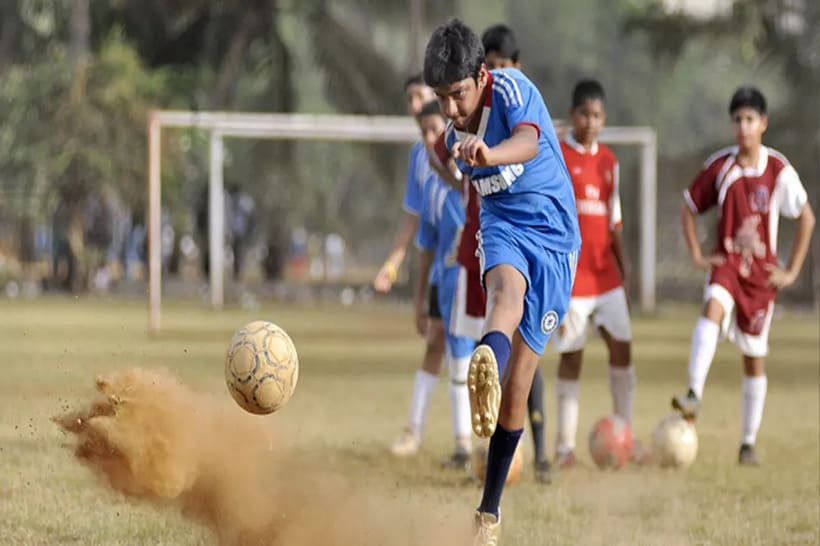Here’s what happy parents do to raise happy kids! Sign up to find out!
You are what you eat! Does that sound familiar? Throughout our growing years, we hear grown-ups around us preaching about the value that nutrition holds. It is only later in life that we realise how true that is.
As parents, we know the importance of eating a healthy and balanced diet. If you are a parent to an athletic child, you may have additional concerns about their nutrition and dietary needs.
I usually come across young athletes who often make mistakes with food choices and eating patterns.
During the formative years, children tend to be high on energy and their motor abilities seem to know no bounds at all. They are hyperactive and feel hungry more often. Due to this, they tend to rely on ready-to-eat foods. Such quick to prepare foods are high in sugar, sodium, and preservatives. Those dehydrated vegetables that claim to be rich in numerous nutrients are in fact, not healthy for the apple of your eye!
As a mom who is raising two high energy children, I also know the struggle of encouraging and guiding my children to healthier food choices.
If you ask me, about a tailored and recommended diet for young athletes, I’d have to say that according to science, there is no ‘one-size-fits-all approach when it comes to your child’s nutrition.
Individual nutrient needs vary by the type, and intensity of the activity, age, body size, goals and training volume. But in general, the more intense the activity and the more hours you train, the higher your carbohydrate and overall calorie needs will be.
One of the trickiest issues to manage is planning meals when important sports events are approaching. Your child is already stressed about managing academics with the preparations for the game, while you want to do everything to support her/him.
The KSP Meal Plan evolved from this point – moms needing help to figure out how to simplify their day in the kitchen. If you are in a soup & need ideas, recipes, tips and hacks to ace it in the kitchen subscribe to the KSP Meal Plan and let’s turn those sulking faces into smiles!
Let me share a few tips that can help you:
When Is The Right Time To Eat?
The timing of meals is very important and needs to be individualized. It is important for children to discover which foods they like that also help to maximize performance.
Many parents ask me about ways in which healthy diets can help their child perform better. Consuming a nutrient-packed diet ensures that your child is getting all the nutrients their body needs to produce energy and create new muscle tissue, enzymes and other cellular structures involved in energy metabolism. Proper nutrition can also help repair damage from training as well as everyday wear and tear. In addition, it keeps the body’s muscles, bones, joints, tendons and organs functioning optimally.
How Often Should One Eat?
Children playing intense sports should be eating five to six balanced meals and snacks each day and should be eating every two to three hours.
What Should You Eat?
Each meal should include a balance of complex carbs, lean protein, healthy fat, fruits and vegetables. Each snack should include a combination of all three macronutrients: complex carbs, lean proteins and healthy fats.
Pay attention to: If your child has any food allergies or intolerances, work with a Sports Nutritionist or a Dietitian to make sure they are appropriately filling any ‘gaps’ in their nutrition that are created by eliminating foods or food groups.
The Following Meal Guidance Is Recommended For Your Child:
- For muscle energy
- Whole grains and other complex carbohydrates like millets, oats, rice, quinoa, whole wheat bread, sweet potatoes, and pulses and legumes
- For normal bowel movements and gut health
- At least 2 to 4 servings of fruit per day
- For growth, development and performance
- Around 3 to 5 servings of vegetables per day
- For muscle growth and repair
- Lean proteins like chicken, fish, beans/lentils, tofu, eggs, yoghurt and milk
- Healthy fats
Fat-soluble vitamins and maintaining healthy joints. (nuts, seeds, olive oil and avocado)
Hydration Is Key To High Performance
Physical activity and sustained periods of playing outdoor games result in excessive sweating and perspiration. While this is pivotal to aid the release of toxins from the body, it is vital for children to drink plenty of fluids to prevent dehydration. Dehydration can suddenly zap strength, energy, and coordination. Even mild dehydration can affect their performance.
These children can’t rely on thirst to tell if they’re getting dehydrated. Thirst is a sign that their body has needed liquids for a while now. It is advised for kids should drink water before playing the sport and every 15 to 20 minutes throughout. They also should drink water afterwards to restore fluid lost through sweat.
Hydration is required to keep the electrolyte and fluid balance of the body in check. Kids should avoid excessively sugary drinks and carbonated beverages that can upset the stomach.
Sports drinks can be a good choice for kids who do intense physical activity for more than 1 hour.
The Fruit Doesn’t Fall Too Far From The Tree!
If you eat greasy food and carbonated beverages at every meal, you can simply not expect your child to ignore you’re eating habits and miraculously develop healthier ones on her/his own!
Parents can encourage healthy eating behaviours in children by first modelling those desired behaviours. Children pick up the behaviours of the adults in their lives. Therefore, if you want your child to eat healthy, you need to set a good example.
Parents are responsible for the what, when and where of eating, so do your part by planning healthy meals and snacks at a set, regular meal and snack timing.
- Make eating a pleasant and positive experience.
- Introduce new or healthy foods to your child in a fun and positive way and never nag children or make negative comments about a child’s eating habits. This only makes things worse.
- Offer, but don’t force. The more you pressure your child to eat a certain food, the less likely your child will be to eat that food. On the other hand, the more you restrict certain foods, it’s more likely your child will crave that food.
Adolescence is a sensitive period of an individual’s life when certain body changes and dilemmas surround a child who is close to adulthood, therefore in general, you should figure out ways of dealing with your child and never make her/him feel neglected or suffocated.
We hope this helps. If you have questions you need answers to, write to us and we will ask an expert to answer them for you.




















